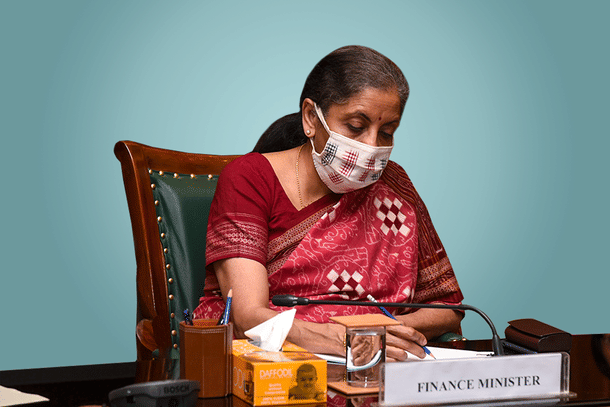Economy
FM’s Best Job-Creating Idea Is The One To Make Life Easier For One-Person Companies (OPCs)
R Jagannathan
Feb 09, 2021, 11:00 AM | Updated 11:00 AM IST
Save & read from anywhere!
Bookmark stories for easy access on any device or the Swarajya app.


One of the simplest and most revolutionary ideas contained in Nirmala Sitharaman’s “growth budget” for 2021-22 is the promise to make life easier for small companies, especially one-person companies (OPCs).
This idea is revolutionary not because it is a new one — the Companies Act 2013 already has provisions for incorporating OPCs — but because OPCs need much more than just a provision in the law.
OPCs cannot achieve their true potential as creators of worthwhile jobs and incomes without major deregulation. This is what Sitharaman has proposed.
But before we come to that, let us first understand what an OPC is — and what it is not. It is a limited liability company which has only one member; it is not necessarily a company with just one or two employees or even a small company. It is not a sole proprietorship, which too can be a one-person company, but with unlimited liability.
What an OPC does is corporatise a business without undertaking too many of the compliance burdens prescribed under the Companies Act.
In her budget speech, Sitharaman said: “As a further measure which directly benefits start-ups and innovators, I propose to incentivise the incorporation of One Person Companies (OPCs) by allowing OPCs to grow without any restrictions on paid-up capital and turnover, allowing their conversion into any other type of company at any time, reducing the residency limit for an Indian citizen to set up an OPC from 182 days to 120 days and also allow non-resident Indians (NRIs) to incorporate OPCs in India.”
The italicised parts above indicate significant changes from the law that existed before, and which has not been phenomenally successful in promoting OPCs or jobs.
Under current provisions of the Companies Act, 2013, an OPC can only be set up by an Indian resident, not NRIs. Also, once the paid-up capital exceeds Rs 50 lakh, or turnover exceeds Rs 2 crore annually, it has to compulsorily convert itself into either a private or public limited company as per section 18 of the Companies Act. Perversely, an OPC cannot voluntarily convert itself into a private or public limited company, unless it has been in operation for two years.
Under the changes proposed by the Finance Minister, both residents and NRIs can set up OPCs, and there will be no limit on paid-up capital or turnover, and it can choose to convert itself into any other type of company whenever it chooses to. The period of residency required for anyone, resident or NRI, to set up an OPC is 120 days (four months) of stay in India.
Clearly, when you ask bureaucrats to liberalise, they put in so many conditions as to make the whole process farcical — which was the case with the earlier OPC provisions under section 2(62) of the Companies Act, 2013.
Now, once Sitharaman operationalises the changes, an OPC can grow to any size, take on as many employees as needed, and raise as much capital as it needs to scale up and succeed.
This is huge, for while not every OPC will succeed, the law itself will not deter small entrepreneurs from attempting to create a business that can offer jobs to Indians. It will also encourage more sole proprietorships to corporatise, thus making it possible for them to raise capital for expansion. India’s problem of forever creating dwarfs that refuse to grow and remain suboptimal in size can be addressed partially this way.
The OPC liberalisation, if it is to work, needs strong advocates at the state level, where the regulatory loads are still excessive. This is because power connections, industrial estates, pollution control, and labour laws are enforced by states, and as long as they continue to run an inspector raj, even an OPC regime liberalised at the central level will not be enough. This means Sitharaman needs to ask states to also recognise OPCs as special job-creating vehicles which must be spared “regulatory” overzealousness.
India’s job-creating machine is not going to roar ahead without smaller start-ups, including OPCs, blooming.
Nandan Nilekani, non-executive Chairman of Infosys and creator of the Unique Identity Project, told me in an interview for my book, The Jobs Crisis in India:
Jobs will not be created by (one bank) starting more branches, but if (it) delivers financial services to 100 million people…(If) they get access to the formal economy then they will somehow (make things happen). The important thing is job creation is going to happen at millions of small units. Twenty thousand jobs are not going to be created by Maruti in Manesar; 20,000 jobs will happen when 20,000 small units hire one extra person. That is the way things will happen.
OPCs are the way to go for job creation. The most important task for the Modi government is to help create millions of OPCs, and work with states to make them feel like royalty.
Jagannathan is former Editorial Director, Swarajya. He tweets at @TheJaggi.





